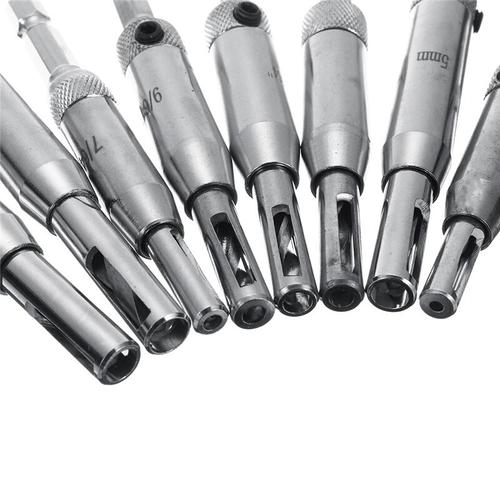
Self Centering Drill Bit: A Comprehensive Guide
When it comes to drilling precision holes, the self-centering drill bit is an invaluable tool. This guide will delve into the intricacies of self-centering drill bits, their benefits, applications, and how to choose the right one for your needs.
Understanding Self-Centering Drill Bits
Self-centering drill bits are designed to maintain a consistent and precise depth when drilling holes. Unlike standard drill bits, which can wander and create uneven holes, self-centering bits ensure that the hole is centered and the depth is accurate. This is achieved through a unique design that includes a pilot point and a self-centering feature.

How Self-Centering Drill Bits Work
The self-centering mechanism of these drill bits is what sets them apart. The pilot point, which is a small, pointed tip at the front of the bit, helps to guide the bit into the material. As the bit drills, the self-centering feature keeps the bit aligned, ensuring that the hole remains centered and the depth is consistent.
Here’s a step-by-step breakdown of how self-centering drill bits work:
| Step | Description |
|---|---|
| 1 | The pilot point guides the bit into the material. |
| 2 | The self-centering feature keeps the bit aligned. |
| 3 | The bit drills the hole to the desired depth. |
Benefits of Self-Centering Drill Bits
There are several advantages to using self-centering drill bits:
- Precision: Self-centering bits ensure that holes are centered and the depth is accurate, which is crucial for many applications.
- Consistency: The self-centering feature maintains a consistent depth throughout the drilling process.
- Speed: The precision and consistency of self-centering bits can lead to faster drilling times.
- Reduced Material Damage: The precise drilling reduces the risk of damaging the material or neighboring components.
Applications of Self-Centering Drill Bits
Self-centering drill bits are versatile and can be used in a wide range of applications, including:
- Woodworking: Drilling precise holes for screws, dowels, and other fasteners.
- Metallurgy: Drilling holes in metal for bolts, rivets, and other fasteners.
- Plumbing: Drilling holes for pipes and fittings.
- Automotive: Drilling holes for bolts, screws, and other fasteners in vehicles.
Choosing the Right Self-Centering Drill Bit
Selecting the right self-centering drill bit depends on several factors:
- Material: Different materials require different bit types and coatings. For example, carbide-tipped bits are ideal for drilling into hard materials like metal.
- Size: The diameter of the bit should match the size of the hole you need to drill.
- Length: The length of the bit should be sufficient to reach the desired depth.
- Coating: Some bits have coatings that improve performance and durability. For example, titanium nitride coatings can reduce friction and extend the life of the bit.
Conclusion
Self-centering drill bits are a valuable tool for achieving precise and consistent holes in a variety of materials. By understanding how they work, their benefits, and how to choose the right one, you can ensure that your drilling projects are successful.





